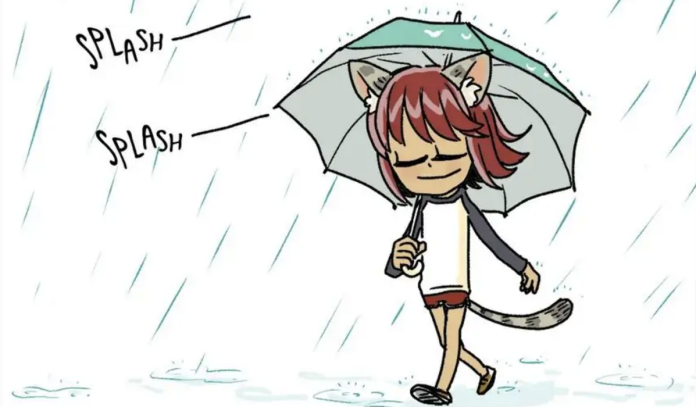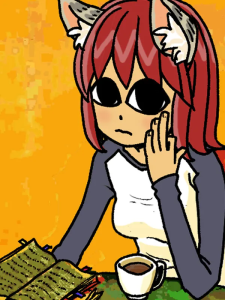 Danzi
Danzi
Writer/Artist: Danzi
Platform: Lezhin
Publication Date: March 29, 2017
Rating: Adult
Genre: Memoir, Diary Comic, Child Abuse
Danzi is a 31-year-old woman living by herself. Her mother is cruel, her father abusive, and her older brother a miniature version of her father. Her younger brother is better, but they don’t talk much. Danzi knows that her parents will never understand or apologize for what they did wrong. Yet she still can’t let go of her own feelings. That’s why she drew this comic, which earned a 2017 Today’s Our Manhwa Award.
The Danzi name is a pseudonym. We don’t know who she really is, except that she had published other comics before starting the series. But that is the point. South Korea is full of Danzis abused by their parents and by their family. Danzi is not exceptional. She could be anybody, anywhere.
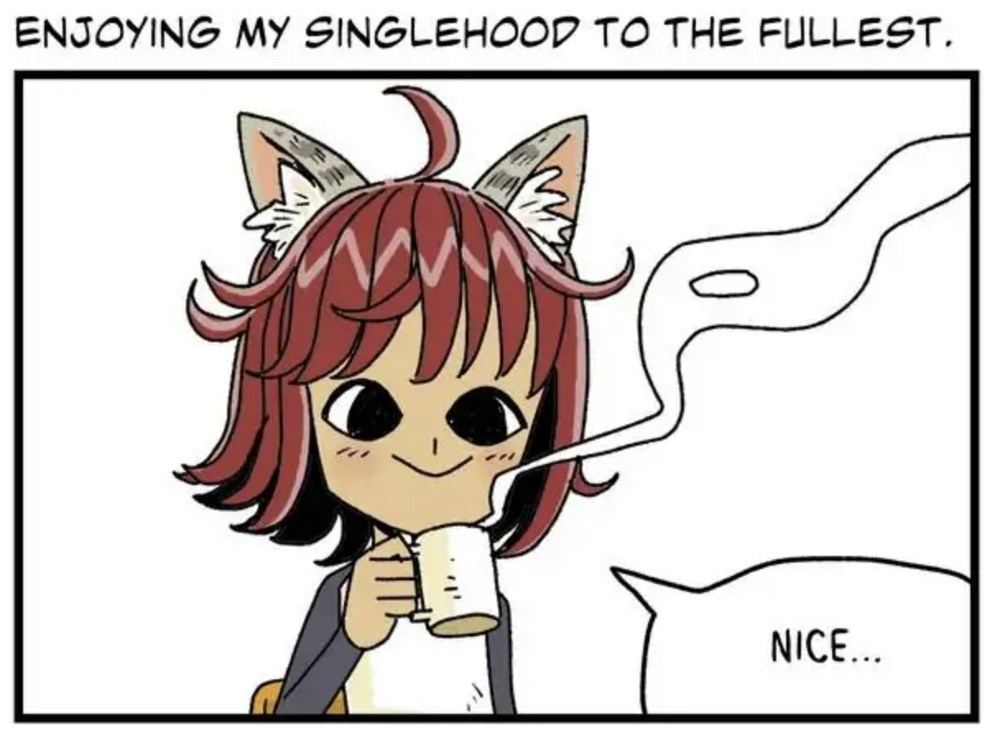
A comic where I vent my frustrations
Danzi draws herself in the strip as a woman with fluffy cat ears, a striped tail and big eyes with vertical pupils. There’s an air of mischievousness to her that I think is essential to the comic’s success. Danzi speaks directly to the reader as a witty confidant spilling her juicy family secrets. Every time the reader reaches the edge of their tolerance, and says “I can’t believe that really happened,” Danzi breaks the fourth wall to say, “I know, right?” She also jokes around by painting herself into “The Creation of Adam” among other things.
Without these embellishments, Danzi might have been an even more depressing read. The artist is unsparing in depicting familial abuse. The second chapter for instance starts on a brutal note, with “Dad kicked me hard in the stomach when I was a middle school senior.” Then Danzi seeks out her old diary to better understand her feelings from that time. The first entry she finds, and the chapter punchline: “I couldn’t take it any more so I cut my wrists today.” A traumatic memory is repurposed as a joke, and a reminder to tune in “NEXT TIME.” That is the essence of Danzi.
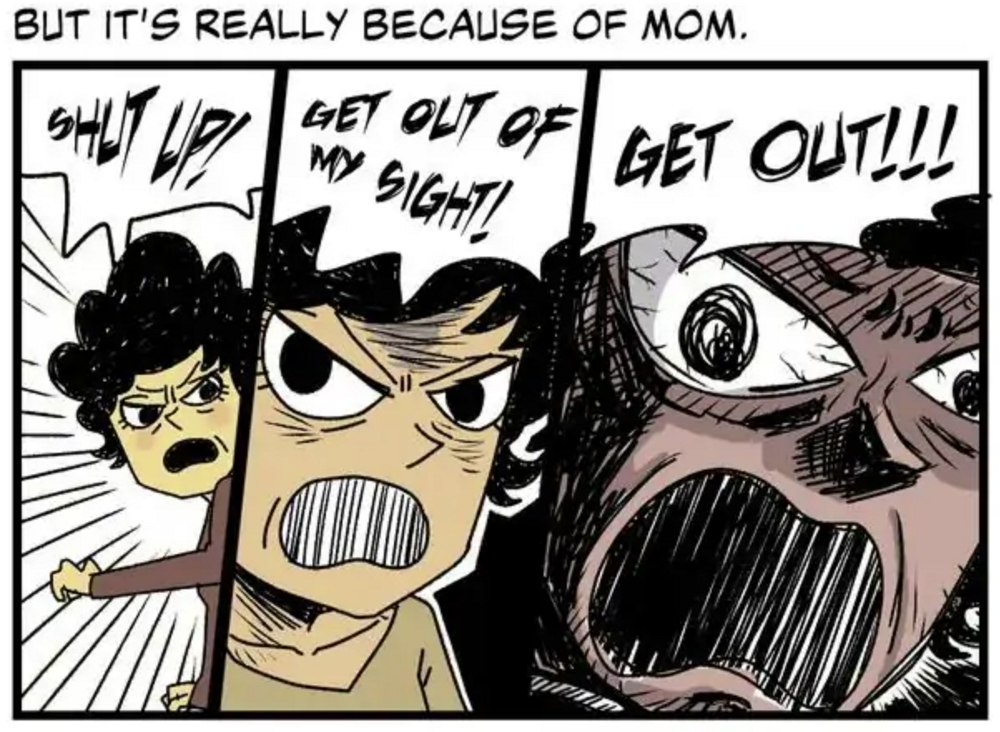
Get out of my sight
Danzi is also particularly good at depicting the way that anger distorts people. Her parents transform from cartoons into thick black scribbles and gaping holes when they are upset. Their eyes and mouths fill the panel. It rings true to my own experience dealing with friends and family struggling with anger management; when they snap, they really do grow huge in that way, and eat up light and air like a black hole. It also puts Danzi’s fears into perspective. The cat ears she draws for herself do a lot to telegraph the constant anxiety of living with abusive parents and family members.
You long for the moment that Danzi casts away her family and heals herself, as the heroine does in KComicsBeat favorite Because I Love You. Unfortunately this isn’t quite that kind of comic. Certainly Danzi goes to therapy, works through her feelings and draws boundaries between herself and her family. But she also can’t help but second-guess herself, even when her therapist insists that her parents are too self-absorbed to ever apologize to her. (Danzi is bewildered when their actions match her therapist’s predictions exactly, as if they were following a script.) She also admits to using her younger brother as a sink for her own anxieties, just as her parents did to her.
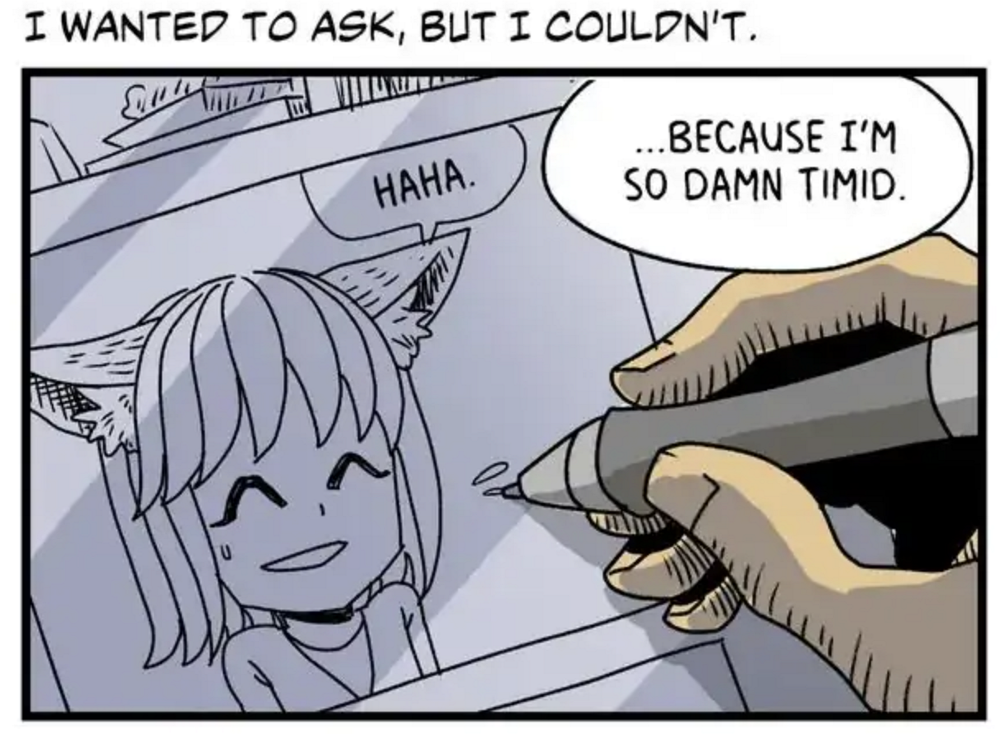
But I am pathetic
The closest comparison to Danzi in the manga world is Nagata Kabi, starting with My Lesbian Experience with Loneliness. Like Kabi, Danzi depicts herself as a flawed, even “problematic” heroine suffering from anxiety and trauma. Her later, yet-to-be-translated work has also drawn criticism that should be familiar to any Kabi reader. “Why does this comic artist keep making impulsive decisions? Are they destroying their lives for the sake of drawing comics?” I don’t know the answer, except to say that for better or worse, Danzi and Kabi both draw as they live.
I think it’s unfair to compare Danzi to Kabi, though. First because Danzi precedes My Lesbian Experience With Loneliness by a year; the Korean version began serialization in 2015. Second because South Korea has a long history of memoir comics. One of the earliest Korean webcomic hits was Sim Sunghyon’s Papepopo Memories in 2002. Even Kang Full, who popularized longform story webcomics in Korea, drew memoir comics when he was starting out.
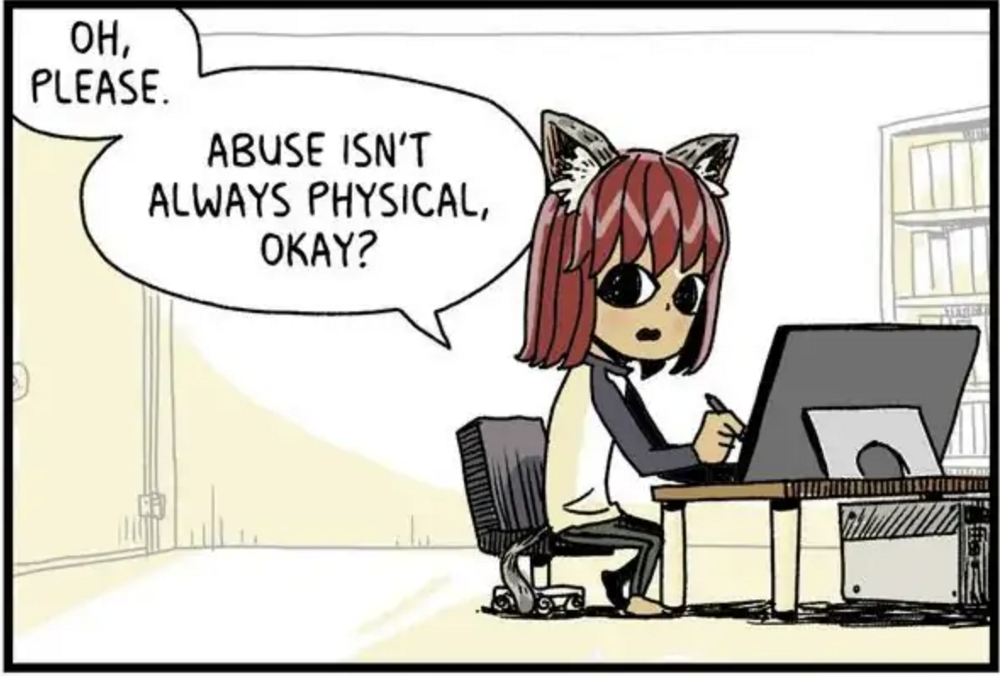
I began to rationalize my feelings
Danzi also hit at a specific moment in Korean history and pop culture. It shared the 2017 Today’s Our Manhwa award with Myeoneuragi, an Instagram comic about a woman mistreated by her husband’s family after marriage. (The series was later adapted into a live-action drama, although I don’t believe it’s legally available in English as of yet.) The feminist novel Kim Jiyoung, Born 1982 was published a year before in 2016, and only became more popular over time. Then the “escape the corset” movement hit in 2018. Everybody at that time was either conversing about institutional misogyny or trying to shut the conversation down.
That’s not to say that Danzi is just about misogyny. After all, people of all genders can be abused by their parents, and abuse others in turn. As Danzi switches gears from its first to second season, it becomes a vehicle for other anonymous victims of familial abuse to tell their stories. Danzi herself changes roles from diarist to journalist. The shift in focus isn’t quite as charming as the first season. But it does allow for a broader set of perspectives, like that of an older woman shut out by her siblings, or a younger man whose father cut off his fingers to ruin a promising piano career.
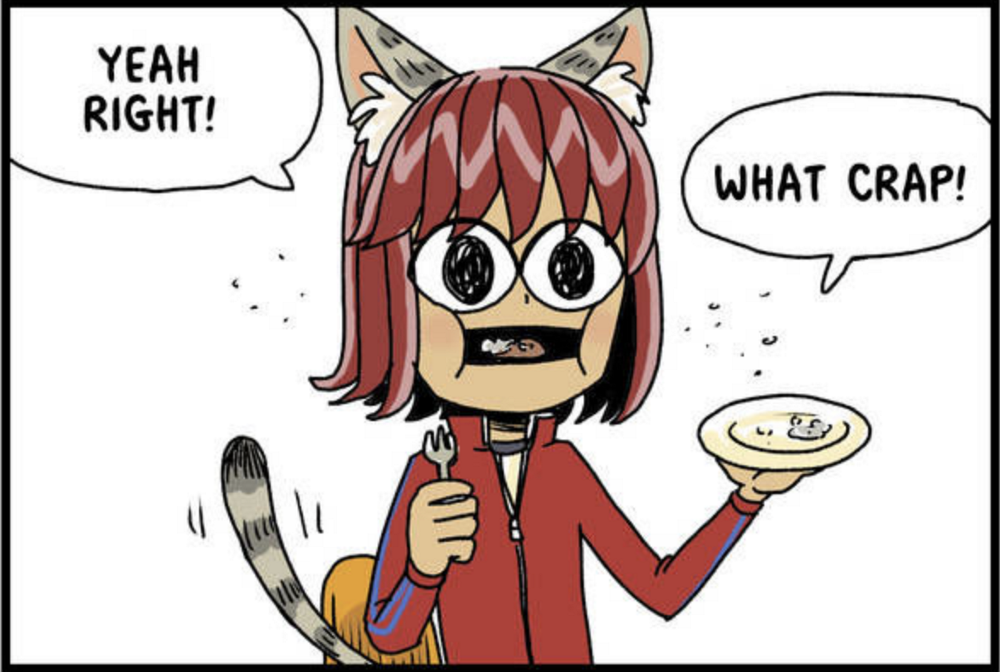
I want to find the real me
That brings us to the heroine’s younger brother, the thread running through all of Danzi. At first Danzi doesn’t have much to say about him, except that her parents obsessively control his life even as they ignore her. An early meeting between the two of them in the first season doesn’t come to much. But he keeps showing up, and eventually the two of them build a functioning familial relationship.
In the very last chapter, we learn exactly what her younger brother thinks of Danzi the comic. The entire time you were suffering, he says, I was also suffering. Why didn’t you say anything? This is what the heroine calls “solidarity in pain.” What hurts so much about familial abuse isn’t just the harm sustained, but the way in which your peers refuse to admit it exists. Just having one other person that shares your experiences makes up for a lot. Danzi and her younger brother were both hurt differently, but they are still bound together by their scars.
It’s easy in situations like these to equivocate; to say that what happened to you “doesn’t count” because worse has happened to others. Danzi asks the reader to put that to the side for a second, and then ask themselves how and if their past abuse affected their behavior. In the process, Danzi transcends its status as an entertaining venting session. Instead it becomes a tool for the heroine (and the reader) “to find the real me. What I feel…whether I’ve truly been acting of my own will…whether I’m suffering from trauma…I want to find out.”

